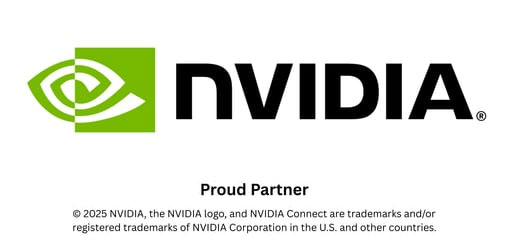If there is a single refrain I hear most from European VCs right now, it is the call for de-risked investments. Many still want the upside of AI and digital sovereignty, but on terms that would not raise a pulse in the government bond market. The result? Most miss the point entirely. The very nature of a venture is risk. No risk, no return. The world is not waiting for “safe” European innovation, and neither are ambitious founders. Let’s face it: If you can’t stomach the risk, you’re not suited to be a VC.
You do not have to look far for proof that the old models are dead. In 2024, AI startups in Europe raised over $8 billion, more than triple the amount seen in 2022, according to TechCrunch. This was not just a spike; it was a fundamental shift. French firm Mistral AI, a startup less than two years old, raised over €2 billion in a round led by ASML, reportedly valuing it at more than €11 billion.
All while Lovable raised $200M at $1.8B valuation just 8 months after launch, Supabase nabbed $5B valuation and Unconventional is raising at $5B valuation. Gone are the days when European deeptech rounds were a footnote to Silicon Valley’s headlines. The risk appetite is real, and so is the capital that follows it. I understand that not every VC fund has the pockets deep enough to lead such rounds, but you don’t need billions to back a future infrastructure monopoly, either.
Due Diligence or Due Dullness?
Historically, due diligence has been about protecting investors, checking that the books are in order, and the team has a track record. But when diligence becomes an exercise in filtering out every possible uncertainty, it is not prudence; it is paralysis. Over-analysing early-stage companies in search of total safety can mean one thing only: Missing the opportunity altogether.
Across Europe, deal velocity is up and timelines are shrinking, despite the fact that it’s still darn slow for the industry. American deals often close in weeks rather than the months European founders say they endure at home. In the AI sector, deals routinely close faster, with competition from US and Middle Eastern investors driving that pace.

If you are running multiple layers of committee review while others are wiring funds, you are not managing risk; you are eroding your own returns. Worse, the “no-risk” mindset is self-defeating. If your goal is to guarantee a positive return with no possibility of loss, the safest – and perhaps only – option is government bonds. As inflation is edging up, the yield from the bonds is also on the rise. Good luck with that, though.
Founders Have Moved On

The most ambitious founders in Europe are now conducting the interviews, not sitting in them. As global capital floods in, founders are seeking out not just funding but partnership. They want investors who can act quickly, commit fully, and stand with them when the easy answers run out.
European VCs have lost ground to international money, especially in AI, infrastructure, and SaaS. According to Atomico’s State of European Tech report, the alignment of vision and purpose is what founders most want from an investor.
Moreover, non-European investors contributed nearly half of the total funding in European growth-stage rounds in the first three quarters of 2024, with US investors making up 35% of that pool. And the size of those rounds is growing. For example, Helsing, a Berlin-based defence AI company, raised €450 million in 2024. The message is clear: Founders will choose the money that believes in their vision, not the capital that questions their ambition. And yes, personally, I can confirm this, too.
The False Promise of De-Risked Innovation
The notion that VCs can filter, structure, or diligence their way to zero risk is not just wishful thinking; it is a misunderstanding of what venture capital is meant to do. The outliers, the companies that will define the next decade, are not obvious. They are not “safe” in the conventional sense. They are risky by definition. If they were not, the returns would not exist.
Not every startup will make it, and not every big vision will pan out. But when a founder with a genuine moat and market pull is forced into endless proof-of-concept cycles, or told to accept “milestone-based” tranches with governance shackles, we are not de-risking, we are undermining what makes European tech dynamic at all. There is a place for safety in a portfolio, but it is not the role of early-stage VC.
Let me be frank. If you want a no-risk investment, the bond market welcomes you. But if you want to change the trajectory of an industry, you need to accept uncertainty as the price of admission. The real question is, however, do you see the opportunity when it is offered to you on a silver plate, or are you just fixated on your old ways, looking for confirmation of your bias?
To Those Who Dare: The Real Opportunity
This is not a plea for recklessness, but a call to clarity. Inflation will continue to erode your safe profits. Regulatory, technological, and geopolitical change will keep raising the bar for founders. But for investors willing to accept calculated risk, there has never been a more exciting time to be in European tech.
At North Atlantic, we are seeking partners who see that regulatory moats, sovereign infrastructure, and trust are not just buzzwords; they are the new battlegrounds for real value. If you are an investor who understands that risk and reward are inseparable, we are open for business.
If you want guaranteed, safe returns, enjoy your bonds. The rest of us have a continent to build.
Victor A. Lausas
Chief Executive Officer
Subscribe to North Atlantic’s email newsletter and get your free copy of my eBook,
Artificial Intelligence Made Unlocked. 👉 https://www.northatlantic.fi/contact/
Discover Europe’s best free AI education platform, NORAI Connect, start learning AI or level up your skills with free AI courses and future-proof your AI knowledge. 👉 https://www.norai.fi/






